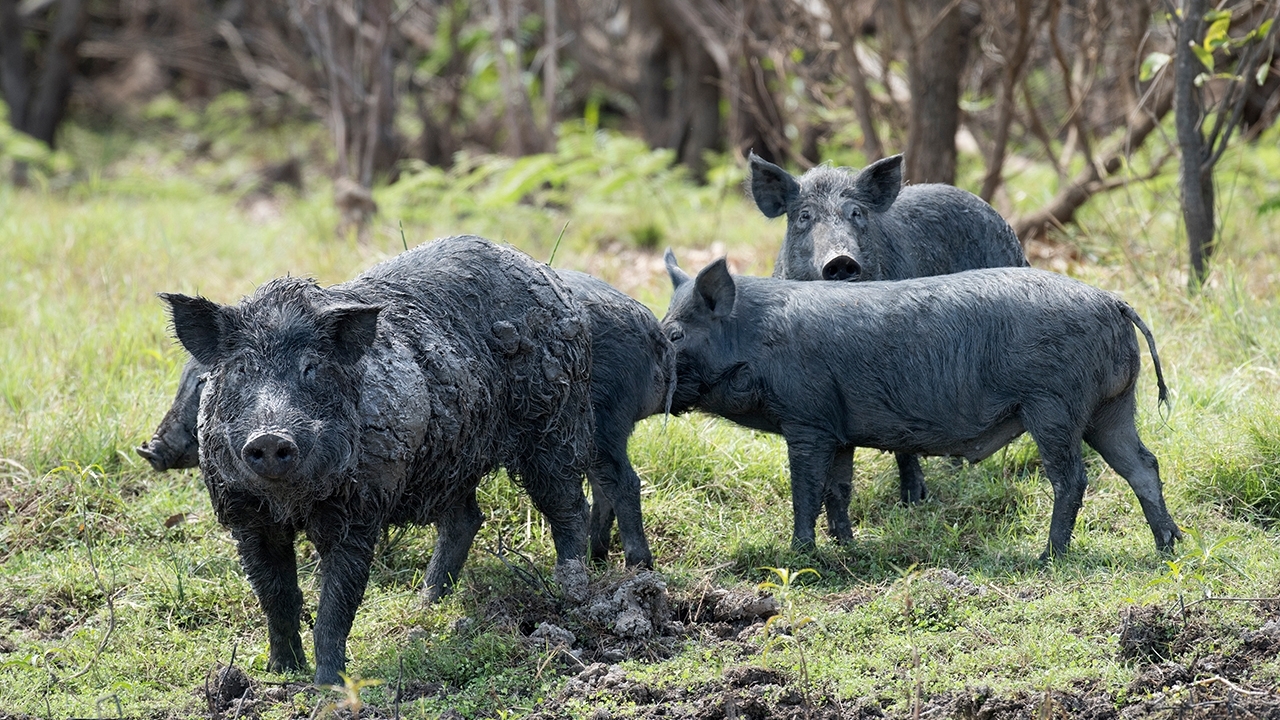NWRC Research Scientists: Dr. Kim Pepin
I am a quantitative disease ecologist who works with managers and policymakers to develop predictive modeling tools to aid decision making in One Health contexts.
Disease. I quantify processes that are important in wildlife disease transmission and invasive species spread, such as contact structure, demography, animal movement, and environmental transmission. I leverage an understanding of these processes for management applications. Example applications include:
- Predicting geographic spread, hotspots, or prevalence of disease
- Inferential methods of disease surveillance data for optimizing disease risk assessment
- Developing designs and conducting adaptive disease surveillance
- Determining optimal disease control strategies (e.g., wildlife vaccination, removal, and other techniques)
- Monitoring and estimating disease elimination
- Methods for interpreting serology data across within and between-host scales for risk assessment
I work on a variety of zoonotic or wildlife-livestock disease systems, often focusing on the reservoir host species. Examples include influenza A, rabies in wild carnivores, African swine fever in wild pigs, bovine tuberculosis in deer, SARS-CoV-2 in wild mammals, and chronic wasting disease in deer.
Invasive or pest species. I develop quantitative tools for risk assessment, evaluating management actions, and guiding control of invasive/pest species and their damage, especially of wild pigs. I also design field studies to identify and understand key ecological processes that are essential for planning science-based management solutions and identifying the best targets for management. Example applications include:
- Developing modeling tools for risk assessment of new pest or disease control products where risk assessment methods are challenging to establish (e.g., transmissible vaccines, gene drive products)
- Methods and user-friendly tools for inferring management efficacy based on management data
- Inferring population density or damage before and after management
- Evaluating population dynamics under different management strategies
- Estimating the amount of damage prevented by management
- Mapping elimination probability
- Identifying how resource allocation can be optimized in space and time
Research Project
This project aims to generate and disseminate applied ecological information related to developing tools to control feral swine damage and wildlife diseases that affect humans and livestock.
Current Research
- Improving communication between model developers and users
- Science-based modeling tools for guiding research, optimizing management, and evaluating management actions in One Health contexts
- Methods for predicting disease emergence in multi-host disease systems, including systems with environmental transmission
- Understanding the role of social processes, contact structure, landscape heterogeneity, and animal movement in disease transmission – methods for inferring these processes and integrating them into predictions of spatial spread
- Disease surveillance design and methods for inferring disease transmission from surveillance data
Areas of Expertise
- Disease ecology
- Evolutionary Biology
- Epidemiological modeling
- Spatial processes
- Wildlife-livestock interface
- Evaluating and optimizing control strategies
- Risk assessment
- Surveillance design
Affiliations
- Affiliate Faculty, Department of Fish, Wildlife, and Conservation Biology and Graduate Degree Program in Ecology, Colorado State University
- Adjunct Faculty, School of Biological Sciences, Southern Illinois University
International Experience
- China (avian influenza)
- Brazil (dengue fever)
- Poland (African swine fever)
- Canada (raccoon rabies, wild pigs)
Publications
View Dr. Kim Pepin's publications.
Education
- Ph.D., 2006, Mechanisms of viral adaptation, University of Idaho
- BSc, 1998, Ecology, University of British Columbia
Contact
Kim Pepin
4101 LaPorte Ave.
Fort Collins, CO 80521


